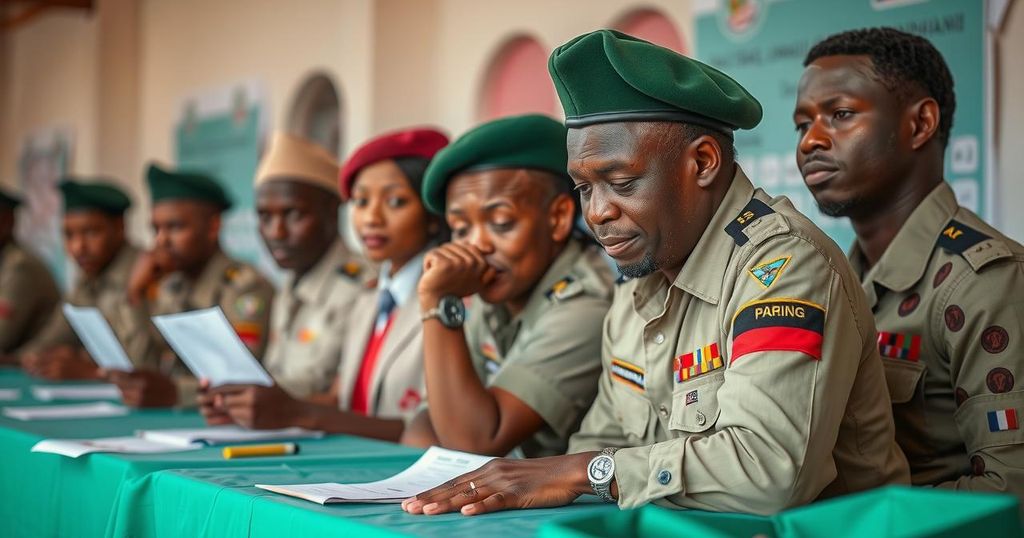Chad held elections for legislative, provincial, and local positions after three years of military rule, which are being boycotted by opposition parties alleging fraud. The elections occur amid ongoing extremism and accusations of repressive governance under Marshal Mahamat Idriss Itno, further complicated by a media blackout due to government restrictions.
Chad has initiated legislative, provincial, and local elections after a three-year period of military governance, which the government portrays as a culmination of a political transition. However, opposition groups are boycotting the elections, creating a landscape favorable to candidates associated with Marshal Mahamat Idriss Itno, who ascended to power following a military coup in 2021 and was later legitimized through a contested presidential election last May. The opposition has condemned the election process, asserting it is characterized by deceit and has alleged electoral fraud, including the disappearance of ballots for Bongor, as reported by the Democratic Party of the Chadian People (PDPT).
On the election day, which allowed voting from 6 AM to 6 PM, around eight million registered citizens were expected to participate, under the oversight of approximately one hundred foreign observers. In a troubling context, the elections occur amid continuing attacks from the jihadist group Boko Haram in the Lake Chad area, alongside an end to military cooperation with France and allegations of Chadian involvement in Sudan’s conflict. Marshal Itno, who succeeded his late father Idriss Deby Itno, emphasizes that these elections are critical for transitioning toward a democratic framework. His regime has faced increasing accusations of autocracy, particularly regarding the violent crackdown on opposition protests.
Moreover, the initiatives to encourage voter participation are overshadowed by ongoing media restrictions, as a strike by online journalists has severely limited reporting on the electoral process. Notably, the government has not provided traditional subsidies for election-related media coverage, leading to a media blackout on election day.
The political landscape in Chad has been tumultuous, particularly following the death of longtime leader Idriss Deby Itno in 2021. The military’s ascent to power and subsequent governance under his son, Marshal Mahamat Idriss Itno, has been met with skepticism and opposition. The current elections are viewed as a pivotal moment for political transition, although they are marred by allegations of electoral misconduct and a lack of genuine democratic engagement, fostering a climate of distrust among the populace.
Chad’s recent elections are framed as a vital step in the country’s transition to democracy after years of military control; however, the opposition’s boycott highlights deep-seated concerns regarding electoral integrity and democratic legitimacy. The charges of widespread fraud and suppression of dissent signal an ongoing struggle for political freedom in Chad. Despite the government’s portrayal of the elections as a pathway to democracy, the prevailing sentiments of distrust and apprehension challenge the credibility of this democratic process.
Original Source: www.barrons.com






